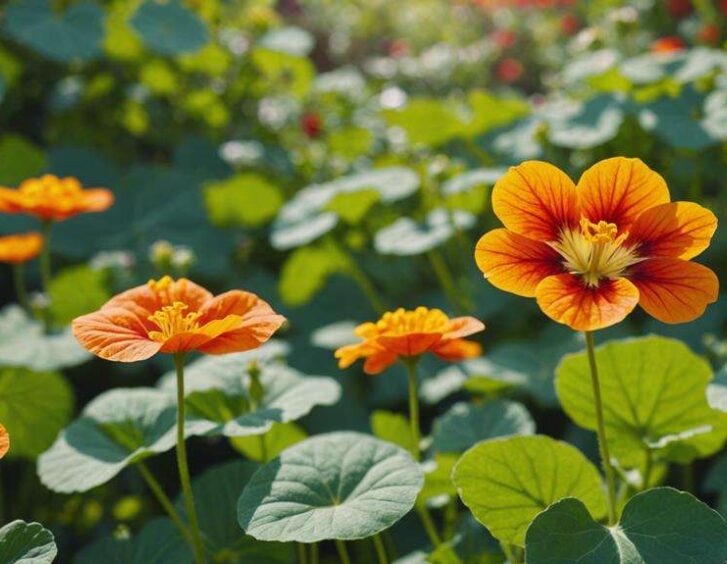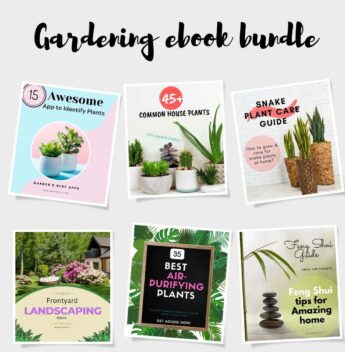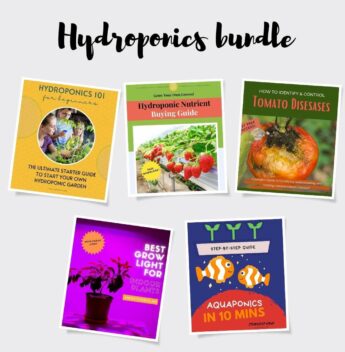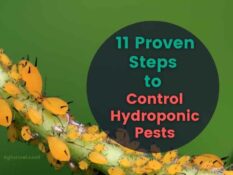You're likely tired of watching pests devour your garden, but did you know that nasturtiums can be your secret weapon? These flowers repel pests like aphids, whiteflies, and squash bugs, while attracting beneficial insects like ladybugs and lacewings. By strategically planting nasturtiums alongside your valuable crops, you can create a natural defense system that's both effective and visually appealing. With their spicy scent, nasturtiums even deter mosquitoes! By learning how to harness their power, you can safeguard your harvest without chemicals and access a robust defense against garden pests. There's more to discover about how nasturtiums can revolutionize your garden.
Key Takeaways
• Nasturtiums repel unwanted pests like aphids, whiteflies, and squash bugs, and attract beneficial insects like ladybugs and lacewings.
• Strategically placing nasturtiums alongside specific crops enhances their pest-repelling abilities and creates a visually appealing garden.
• Nasturtiums serve as effective trap crops, luring pests away from valuable crops and protecting the harvest without chemicals.
• Combining nasturtiums with organic methods like neem oil and diatomaceous earth creates a robust defense against garden pests.
• Beneficial insects attracted to nasturtiums, such as ladybugs and lacewings, feed on pests, aiding in natural pest control.
Nasturtium Benefits in Pest Control
By incorporating nasturtiums into your garden, you can harness the power of nature's pest control marvel. These flowers not only repel pests but also attract beneficial insects like ladybugs, hoverflies, and lacewings that aid in natural pest control. Nasturtiums effectively repel a range of unwanted pests, including cabbage loopers, aphids, whiteflies, squash bugs, and certain beetles. Additionally, nasturtiums can lure pests away from your prized crops, acting as a trap crop.
Their spicy scent can even deter mosquitoes, creating a bite-free environment. By incorporating nasturtiums into your garden, you'll be taking a natural and eco-friendly approach to pest control, creating a balanced ecosystem that benefits your entire garden.
Companion Planting Strategies
When planning your garden, strategically placing nasturtiums alongside specific crops can greatly enhance their pest-repelling abilities, creating a harmonious and balanced ecosystem. By selecting the right type and color of nasturtium, you can create a visually appealing garden that's also functional.
Nasturtiums serve as effective trap crops, drawing pests away from your cash crops. They also attract beneficial insects that aid in natural pest control. Additionally, nasturtiums help suppress weeds and prevent soil erosion. By incorporating nasturtiums into your garden design, you can create a thriving and resilient ecosystem.
Keep in mind the specific needs of your crops and choose the right nasturtium variety to maximize its benefits. With proper placement and care, nasturtiums can become a valuable asset in your garden.
Using Nasturtiums as Trap Crops
You can strategically deploy nasturtiums as trap crops throughout your garden to lure pests away from your valuable crops, allowing you to safeguard your harvest without resorting to chemicals. By planting nasturtiums as trap crops, you can deter aphids, borers, flea beetles, and other pests that can harm your crops.
To maximize their effectiveness, make sure to plant them in areas where pests are most active. Sowing trays of nasturtiums throughout the year guarantees a constant supply for pest control. Proper placement of nasturtium trap crops is essential for optimizing their effectiveness.
Effective Pest Control Methods
Nasturtiums can be integrated into a multifaceted approach to pest control, combining their natural repellent properties with other organic methods to create a robust defense against garden pests. By incorporating nasturtiums into your pest control strategy, you'll be well on your way to a healthier, more balanced garden ecosystem.
You can use nasturtiums as a trap crop, attracting pesky pests away from your prized vegetables. Additionally, you can combine nasturtiums with other natural methods like neem oil, diatomaceous earth, or hand-picking pests to create a thorough defense system.
Nasturtiums and Beneficial Insects
By attracting beneficial insects like ladybugs, lacewings, and hoverflies, you're creating a powerful alliance that'll help you win the battle against garden pests. These helpful insects are natural predators that feed on the very pests you're trying to eliminate, making them a valuable asset in your garden.
Ladybugs, for example, are known to devour aphids and other soft-bodied insects, while lacewings are notorious for their appetite for whiteflies and other pests. Hoverflies, on the other hand, are masters of disguise, with their larvae feeding on aphids and other pests.
Maximizing Nasturtium Placement
Place nasturtiums strategically throughout your garden to create a pest-repelling fortress. Their potency is directly tied to their proximity to the crops you're trying to protect. By placing them near vulnerable plants, you'll create a barrier that deters pests from reaching your prized vegetables.
For maximum effect, intersperse nasturtiums among your crops, ensuring they're within 1-2 feet of the plants you want to protect. This proximity will allow the nasturtiums to effectively repel pests, keeping your garden healthy and thriving.
Nasturtium Varieties for Pest Control
With your garden layout planned and nasturtiums strategically positioned, it's time to choose the right variety to tackle your specific pest control needs.
You'll find several nasturtium varieties, each with unique characteristics and benefits. 'Alaska' and 'Empress of India' are popular varieties, known for their vibrant flowers and strong pest-repelling properties. 'Jewel of Africa' is another popular option, with its delicate, cream-colored flowers and ability to attract beneficial insects.
When selecting a variety, consider the specific pests you're trying to control and the aesthetic you want to achieve in your garden. By choosing the right variety, you'll be well on your way to creating a pest-free and beautiful garden.
Natural Pest Deterrent Methods
You can create a multi-layered defense against pests by combining nasturtiums with other natural deterrent methods to achieve a pest-free garden.
By incorporating multiple approaches, you'll strengthen your garden's resilience against unwanted visitors.
For instance, introducing beneficial insects, like ladybugs or lacewings, can help control pest populations.
Additionally, using physical barriers, such as fine-mesh screens, can prevent whiteflies and other pests from reaching your crops.
You can also try using neem oil or garlic sprays as natural pesticides.
By combining these methods with nasturtiums, you'll create a robust defense system that keeps pests at bay.
Nasturtium Care and Maintenance
How do you guarantee your nasturtiums receive the right amount of water, sunlight, and nutrients to thrive and effectively repel pests?
Start by planting them in well-draining soil with a pH between 6.0 and 7.0. Nasturtiums need full sun to partial shade, so choose a spot that receives at least four hours of direct sunlight.
Water them regularly, but avoid overwatering, which can lead to root rot. Fertilize lightly, as nasturtiums don't require a lot of nutrients.
Deadhead spent flowers to encourage more blooming and prevent self-seeding. Prune back leggy stems to maintain a bushy shape.
Balancing the Ecosystem Naturally
By incorporating nasturtiums into your garden, you're taking a significant step towards balancing the ecosystem naturally, as these flowers work in harmony with beneficial insects to create a pest-free environment. You'll attract helpful insects like ladybugs and lacewings that prey on pests, reducing the need for chemical pesticides.
Nasturtiums also repel unwanted pests, like aphids and whiteflies, and can even confuse mosquitoes with their spicy scent. By planting nasturtiums, you're creating a balanced ecosystem where beneficial insects thrive and pests are kept under control.
This natural approach to pest control not only protects your plants but also promotes a healthy environment. By embracing nasturtiums, you're contributing to a more sustainable and eco-friendly gardening practice that benefits both you and the environment.
Frequently Asked Questions
Can Nasturtiums Be Grown in Containers for Pest Control?
You're wondering if you can grow nasturtiums in containers for pest control. The answer is yes! Nasturtiums thrive in containers, making them a great option for small gardens or balconies.
Just make sure your container has good drainage and is at least 6-8 inches deep. Use a well-draining potting mix and plant seeds about 1-2 inches apart.
With proper care, nasturtiums will flourish in containers, providing natural pest control benefits for your garden.
Do Nasturtiums Attract Beneficial Insects in Addition to Repelling Pests?
You're wondering if nasturtiums attract beneficial insects in addition to repelling pests.
The answer is yes! Nasturtiums attract beneficial insects like ladybugs, hoverflies, and lacewings that aid in natural pest control.
These beneficial insects help pollinate plants, prey on pests, and maintain a balanced ecosystem.
Are There Any Specific Nasturtium Varieties for Natural Mosquito Control?
You're looking for nasturtium varieties that specifically tackle mosquito control. While nasturtiums generally repel mosquitoes with their spicy scent, some varieties are more effective than others.
Look for varieties like 'Alaska' or 'Empress of India', which have a stronger fragrance that confuses mosquitoes. These varieties are great for natural mosquito control and can be planted strategically around outdoor living areas to keep mosquitoes at bay.
Can Nasturtiums Be Used in Combination With Other Pest Control Methods?
You're wondering if nasturtiums can be used in combination with other pest control methods. Absolutely! Nasturtiums can be a valuable addition to your integrated pest management strategy.
Combine them with physical barriers, biological controls, and organic pesticides for a multi-faceted approach.
Are Nasturtiums Safe to Use Around Pets and Children?
You're wondering if nasturtiums are safe to use around pets and children. The good news is that nasturtiums are non-toxic and generally safe for both. Their spicy scent might even help deter pets from nibbling on them.
However, it's still important to keep an eye on curious kids and pets to avoid any potential choking hazards from the seeds or flowers.
With proper supervision, nasturtiums can be a great addition to your garden, providing natural pest control and beauty.

















 Lalmon LLC. All rights reserved
Lalmon LLC. All rights reserved